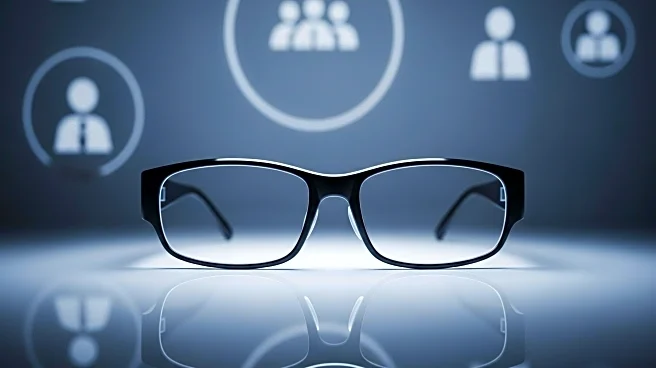What's Happening?
Meta CEO Mark Zuckerberg has claimed that smart glasses will provide a cognitive advantage in the future, suggesting that those without them may be at a disadvantage. At the Connect developer conference, Meta showcased its new smart glasses, the Meta Ray-Ban Display. However, the demonstration faced technical issues, including a malfunctioning voice assistant and lagging video calls. These problems highlighted the current limitations of the technology, despite its potential to enhance cognitive capabilities by providing quick access to information.
Why It's Important?
The development of smart glasses represents a significant shift in how technology can be integrated into daily life, potentially transforming how users access and interact with information. While the promise of cognitive enhancement is appealing, the social implications of wearing such devices are complex. The awkwardness and technical glitches observed during the demonstration suggest that the technology is not yet ready for seamless integration into everyday use. This could impact consumer acceptance and the pace at which such devices become mainstream.
Beyond the Headlines
The introduction of smart glasses raises important questions about the social dynamics of wearable technology. As these devices become more common, they may alter social interactions and perceptions, potentially leading to a divide between users and non-users. The ethical considerations of such technology, including privacy and data security, will also need to be addressed as the technology evolves. The balance between technological advancement and social acceptance will be crucial in determining the future of smart glasses.








